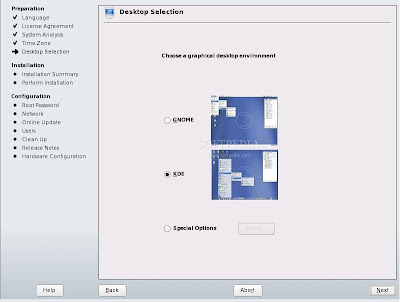Linux administration will become GUI
Introduction I am confident that the future of Linux server administration will rely less on the command line, and that most server admins will use a GUI interface. To understand why this will happen, lets take a look at the success of Windows servers. Learn from history Windows servers have always included a graphical user interface, and there is no indication that this will change. In fact, the popularity of Windows servers is largely due to the fact that server admins could manage their servers with the same interface they used on their desktop. Novell's Netware started out with a huge lead in the server market, but server admins started migrating to Windows because they were more comfortable with the interface. Why should server admins need to learn two operating systems when they can just use Windows? Now that most server admins are familiar with a graphical interface (Windows desktop and server editions), they will resist changing to a command-line driven operating system.

